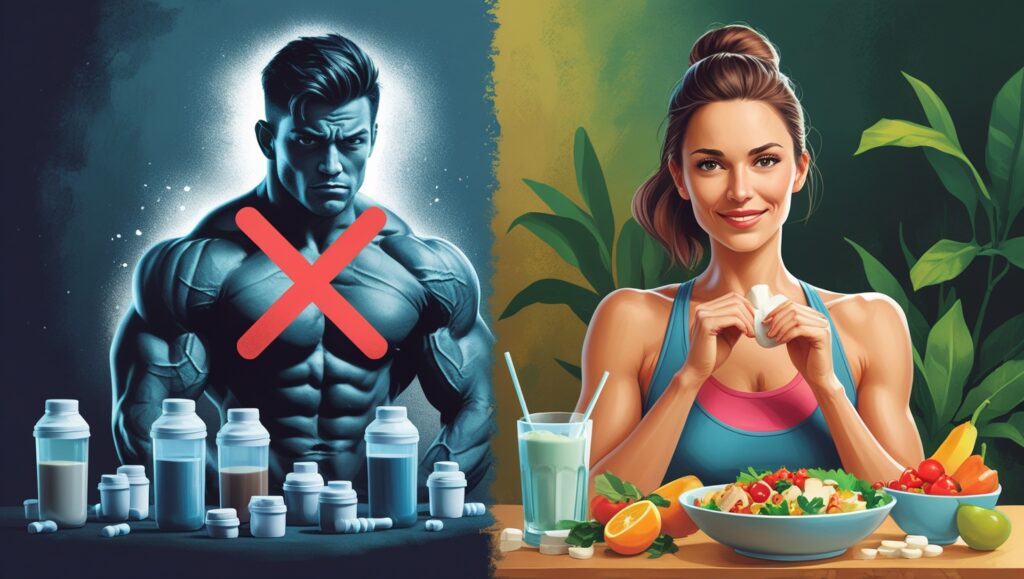The Confusion About Protein
Let’s talk about protein. You’ve probably heard all sorts of things —
“You need more protein to build muscle!”
“You should drink protein shakes every day!”
“If you don’t eat enough protein, your muscles will disappear!”
Protein is one of those things that everyone seems to have an opinion on. Walk into any gym, and you’ll see people chugging protein shakes like their muscles will vanish without them. Grocery store shelves are packed with protein bars, protein chips, and even protein water (yes, that’s a real thing).
But how much of this protein obsession is real? And how much is just hype?
What Is Protein, Really?
Before we figure out if we’re eating too much, too little, or just enough, let’s break it down. What is protein, anyway?
Protein is a building block — literally. It’s what makes up our muscles, skin, hair, nails, and even the enzymes that help us digest food. Every cell in our body needs protein to function. It’s made up of amino acids, kind of like tiny Lego pieces that fit together in different ways to build and repair the body.
Here’s the catch: while our body can make some amino acids, there are nine essential ones we have to get from food. That’s why eating enough protein matters — it gives our body the tools to repair itself and keep everything running smoothly.
Where Do We Get Protein?
Now, here’s where things get interesting. When people think of protein, they usually picture big steaks, chicken breasts, or tubs of whey powder. But protein isn’t just found in meat — it’s everywhere.
Here are some sources of protein you might not think about:
Nuts and seeds (almonds, peanuts, chia seeds)
Beans and lentils (black beans, chickpeas, tofu)
Vegetables (broccoli, spinach, potatoes)
Dairy and eggs (yogurt, cheese, eggs)
Whole grains (quinoa, oats, even bread!)
Yep, even bread has protein. So do vegetables. You could eat a completely plant-based diet and still get enough protein — as long as you eat a variety of foods.
The Truth About How Much Protein We Need
Now for the big question — how much protein do we actually need?
You might have heard things like, “Eat 1 gram of protein per pound of body weight!” or “You need at least 150 grams a day!”
But the truth? The absolute minimum protein you need to survive is about 0.36 grams per pound of body weight (or 0.8 grams per kilogram). That means:
- A 150-pound (68 kg) person only needs about 54 grams per day.
- A 200-pound (90 kg) person needs about 72 grams per day.
And that’s just for basic survival — not for building muscle, running marathons, or lifting heavy at the gym. If you’re active, your body might need more — somewhere between 0.5 to 0.8 grams per pound (1.2 to 2 grams per kilogram). But unless you’re a professional athlete, most people don’t need crazy amounts of protein.
The real truth about protein? It’s not just about how much—you need the right kind, at the right time, for the right reason. Overloading on protein won’t build muscle or burn fat if your body isn’t primed to use it. Balance, digestion, and bioavailability matter more than the number on the label.

The Big Protein Hype
So why is protein treated like the king of all nutrients? Why does it seem like every food company is adding extra protein to everything?
Simple: marketing.
People associate protein with strength, muscles, and energy — so companies take advantage of that. The more people believe they need TONS of protein, the more they’ll buy protein shakes, bars, and powders.
But here’s the truth:
✔️ Most people in developed countries already get more than enough protein from their regular diet.
✔️ Excess protein doesn’t magically turn into muscle — your body either uses it for energy or stores it as fat.
✔️ Your body can’t even absorb unlimited amounts of protein at once. Eating 100 grams in one sitting won’t suddenly make you stronger.
So… What Should We Do?
Instead of obsessing over protein, here’s what actually matters:
Eat a balanced diet with a mix of proteins, fats, and carbs.
Stay hydrated — your kidneys work harder when you eat too much protein.
Exercise regularly — muscle is built through movement, not just eating more protein.
Get enough rest — your body needs sleep to recover and grow.
The bottom line? Protein is important, but it’s not magic. You don’t need to drink five shakes a day or stress about hitting a certain number. Just eat real food, and your body will take care of the rest.